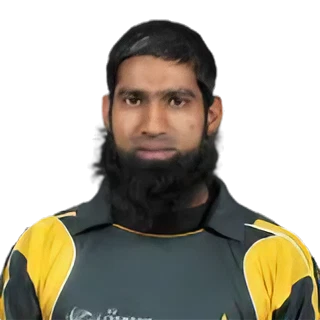Mohammad Yousuf, once known as Yousuf Youhana, emerged as a cricketing sensation. Born on August 27, 1974, he skillfully juggled roles as a coach and a former captain, excelling in all cricket formats.
Remarkably, Yousuf was a rare Christian figure in the Pakistan national cricket team, pre-conversion to Islam. In 2006, he set a world record, amassing 1,788 runs in tests with an astounding average.
Key Takeaways
Hide- Versatile Player: Yousuf excelled in all formats of cricket, showcasing exceptional batting skills and setting numerous records.
- Remarkable Conversion: His conversion from Christianity to Islam in 2005 was a profound personal change, impacting his public image and career.
- Record Breaker: In 2006, Yousuf broke the world record for the most Test runs in a calendar year.
- Controversial Ban: His career faced a significant turn in 2010 due to a ban by the Pakistan Cricket Board, leading to a brief retirement.
- National Honors: Yousuf was awarded the Sitara-i-Imtiaz in 2011, Pakistan's third-highest honor.
- Resilient Comeback: Despite facing setbacks, including a ban and injuries, Yousuf made notable comebacks in his career.
- Leadership Role: His abilities were recognized when he captained the Pakistan national cricket team and led domestic teams to victory.
The Controversial Ban: Mohammad Yousuf’s Turbulent Times
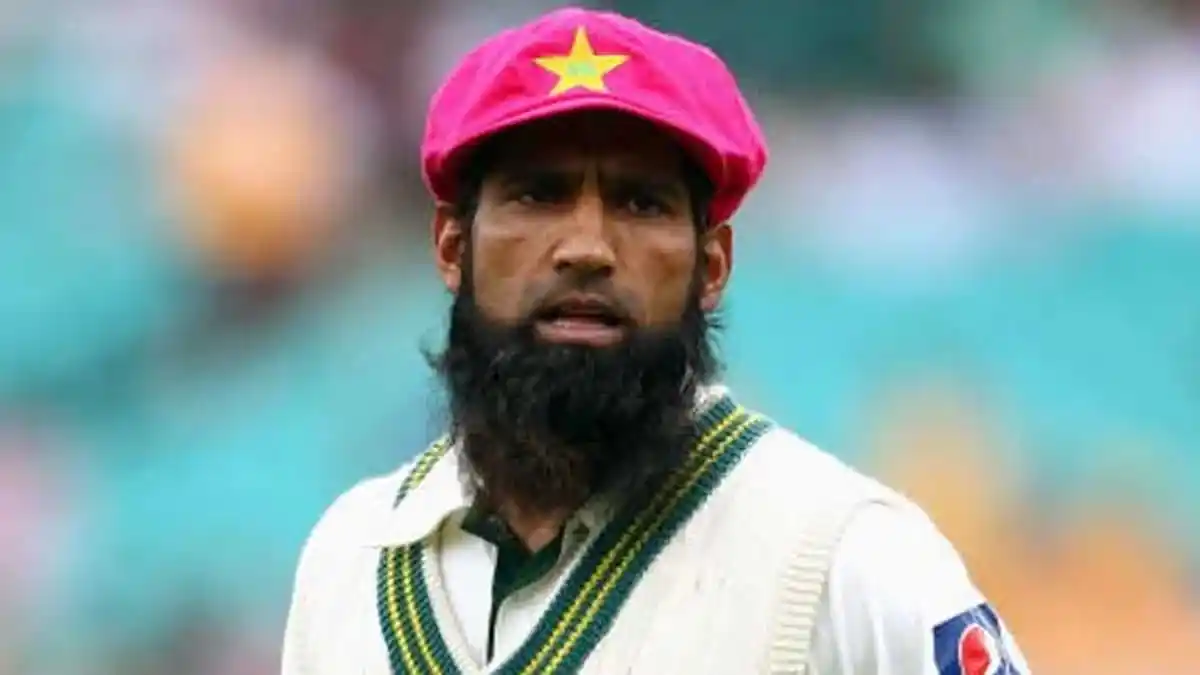
On March 10, 2010, a shocking decision hit the cricket world: Pakistan Cricket Board banned Yousuf. This followed an inquiry into the team’s defeats in Australia.
The Board cited disciplinary issues and team infighting as key reasons. Consequently, this ban marked a significant turn in Yousuf’s career.
Mohammad Yousuf’s Retirement and Return: A Twist in the Tale
Reacting to the ban, Yousuf announced his retirement on March 29, 2010. However, Pakistan’s cricket landscape shifted dramatically.
After a disastrous Test against England, the PCB reconsidered. They requested Yousuf to reverse his retirement decision, adding a new chapter to his cricket saga.
From Streets to Stumps: The Early Life of Mohammad Yousuf
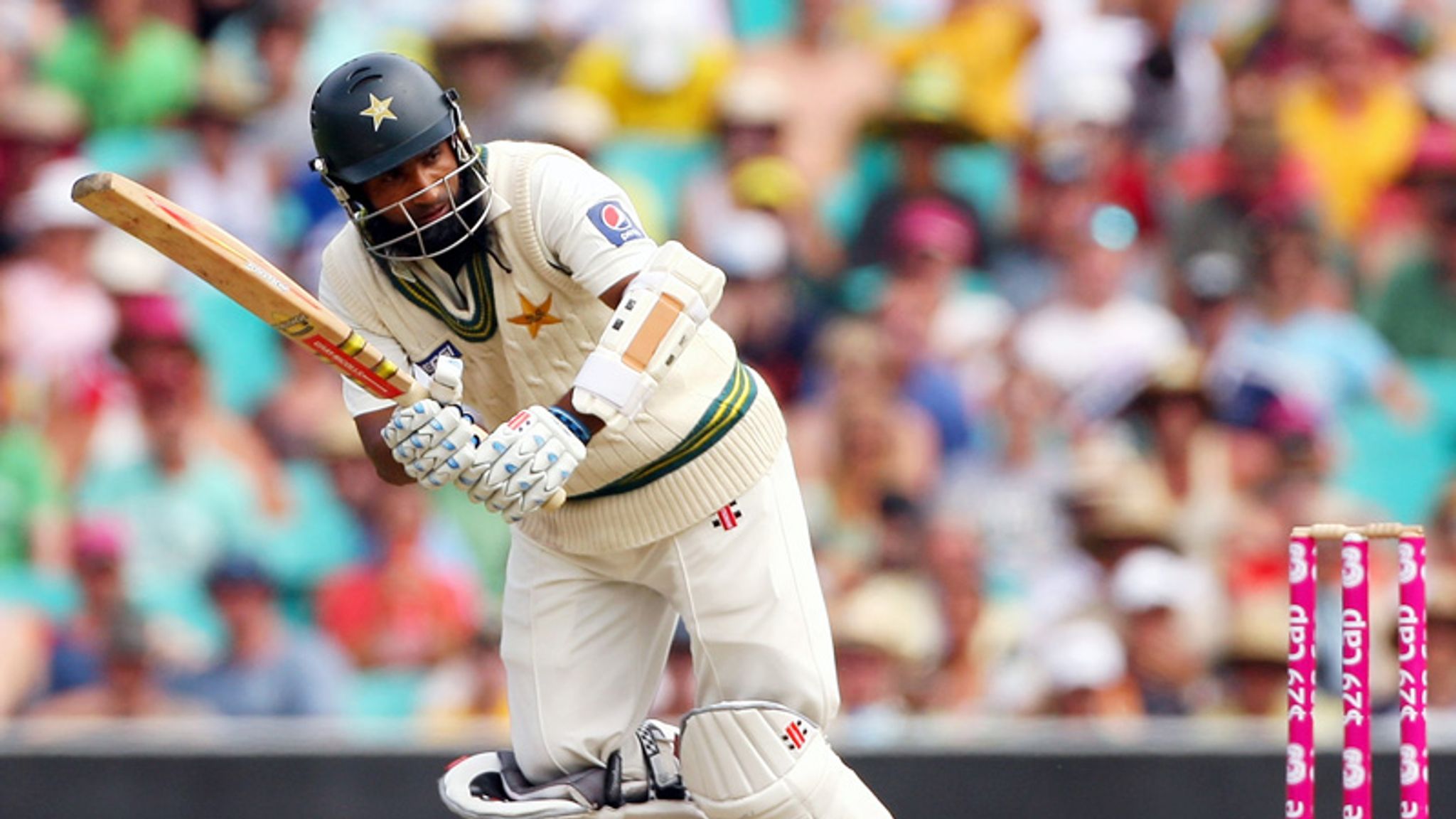
In Lahore’s bustling streets, a young Mohammad Yousuf emerged. Born into a modest Punjabi Christian family, he faced the challenge of poverty.
Cricket gear was a luxury, far beyond his reach. Yet, Yousuf’s passion for the game didn’t wane. With his brother’s taped tennis ball and makeshift wooden planks, he honed his skills in street cricket.
At just 12, Yousuf’s raw talent caught the eye of Golden Gymkhana scouts. This opportunity led him to Lahore’s Forman Christian College. There, his cricket journey flourished, until an abrupt pause in early 1994.
From Obscurity to Ovation: Mohammad Yousuf’s Rise
Mohammad Yousuf’s tale is one of unexpected twists. Initially, he spent his days in a tailor’s shop, tucked away in Lahore’s slums.
However, the 1990s brought a life-changing moment. Invited to play in a local match, Yousuf’s exceptional shots turned heads.
Quickly, he ascended from the shadows of poverty to the spotlight of Pakistan’s cricket scene. His journey from a humble beginning to becoming one of Pakistan’s finest batsmen is a testament to his unwavering determination and skill.
A New Chapter: Mohammad Yousuf’s Conversion to Islam
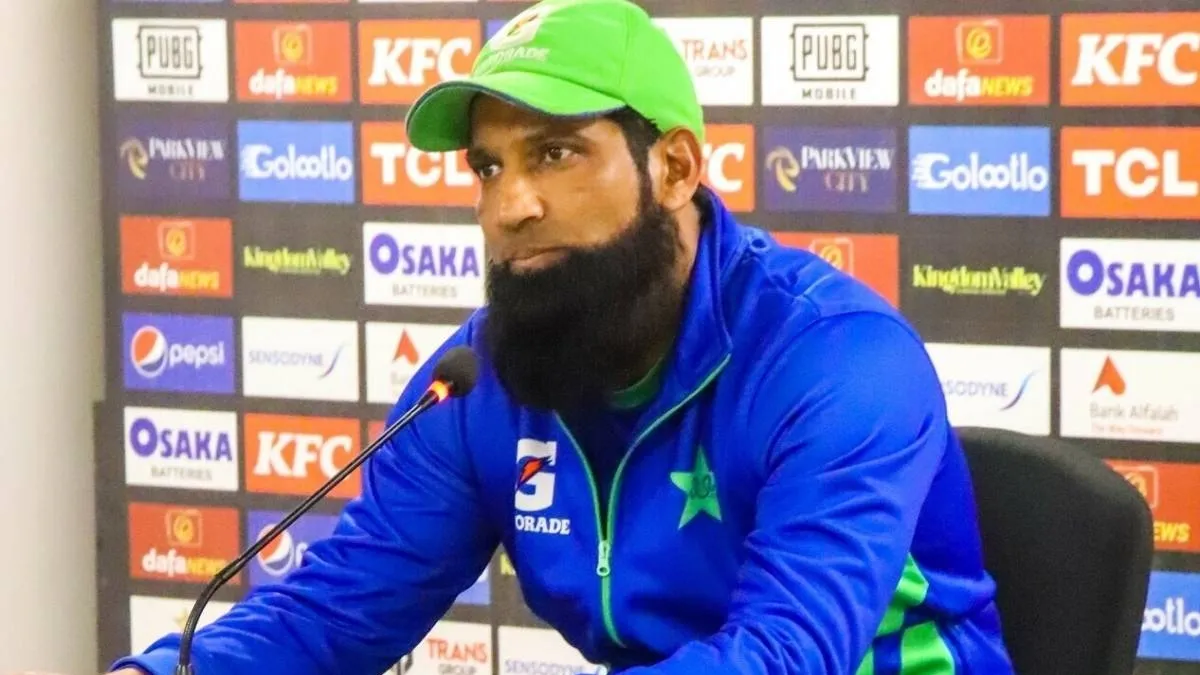
Before 2005, Yousuf shone as Pakistan’s fourth Christian cricket star. He tread paths blazed by Wallis Mathias, Antao D’Souza, and Duncan Sharpe.
Remarkably, he captained Pakistan in 2004–05, scoring a century in Melbourne. Then, Yousuf’s life took a turn. He embraced Islam, inspired by Tablighi Jamaat’s preaching, including words from teammate Saeed Anwar.
Together with Tania, his wife, they journeyed into a new faith, adopting Islamic names. Tania became Fatima.
They kept this change private at first, respecting family dynamics and personal beliefs. Later, in September 2005, they shared their decision publicly.
Family Dynamics and Public Recognition
Yousuf’s mother expressed shock and disapproval in the press. “We learned from his Friday mosque prayers,” she revealed, highlighting the family’s surprise.
Conversely, Yousuf described his newfound faith as a profound experience to the BBC. The cricket world took notice. Rameez Raja, a fellow Muslim and cricket authority, underscored the impact of Yousuf’s conversion.
He emphasized its significance in Yousuf’s personal and professional evolution. This journey of faith marked a pivotal chapter in the life of Mohammad Yousuf.
Mohammad Yousuf: From Debut to Dominance

In his early days, Mohammad Yousuf burst onto the international cricket scene with flair. He debuted in Test cricket against South Africa in Durban, quickly followed by his One Day International debut in Harare against Zimbabwe.
Impressively, Yousuf amassed over 9,000 One Day International runs, boasting an average above 40. In Test matches, he notched up over 7,000 runs, averaging above 50.
This remarkable average ranks as the second-highest among all Pakistani batsmen. Yousuf’s batting prowess was evident with his 24 Test centuries.
He set a unique record in 2002-2003 against Zimbabwe, scoring a whopping 405 runs in One Day Internationals without being dismissed.
Furthermore, Yousuf’s agility shone through with a 23-ball fifty and a 68-ball century in One Day Internationals.
His Test skills were equally impressive, achieving a 27-ball fifty, the third fastest in history. Consistently topping score charts in 2002 and 2003, he was the world’s leading scorer in One Day Internationals.
Notably, in 2004, Yousuf’s 111 runs against Australia in the Boxing Day Test caught everyone’s attention.
His excellence continued as he struck 223 runs against England in Lahore by December 2005, earning the man of the match award.
Yousuf’s momentum didn’t slow; in July 2006, during Pakistan’s tour of England, he scored 202 and 48 runs in the first Test, clinching another man of the match title. He followed this up with 192 runs at Headingley and 128 at The Oval.
Rising Star: Yousuf’s Trailblazing Journey
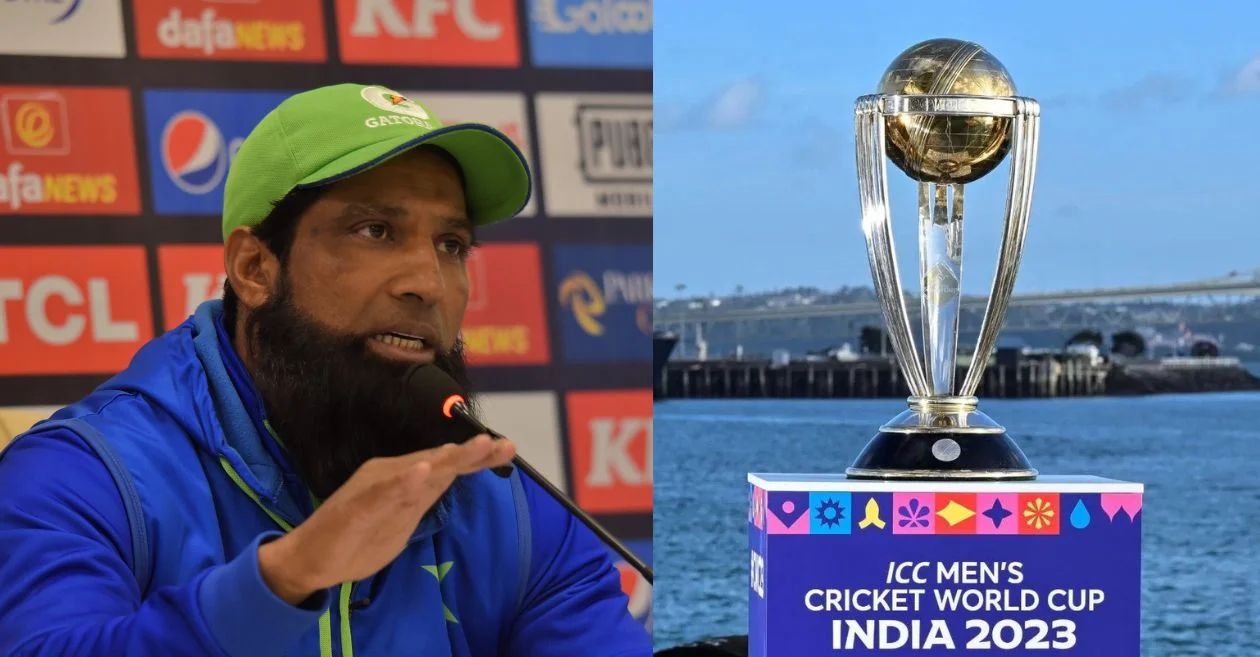
In 2006, Yousuf’s career soared to new heights. CNN-IBN honored him as Cricketer of the Year, placing him ahead of cricket legends like Ricky Ponting and Brian Lara.
Wisden also recognized his talent, naming him a Cricketer of the Year in 2007. Yousuf’s astounding performance of 944 runs at an average of 94.40 in just 10 innings earned him the prestigious ICC ‘Test Cricketer of the Year’ award.
This achievement outshone stars like Kevin Pietersen and Ricky Ponting. Yousuf’s 2006 was nothing short of spectacular, breaking two of Viv Richards’s world records.
He accumulated an unprecedented 1788 runs in just 10 Test matches, featuring twelve centuries. His style, marked by exceptional technique and composed strokeplay, made him a cricketing sensation.
Despite his tendency for hard hits, Yousuf was quick on his feet, although sometimes prone to run-outs.
The year 2006 witnessed him break Viv Richards’s record, becoming the highest scorer in Test matches in a single calendar year. His nine Test centuries that year set a new global benchmark.
Moreover, Yousuf equaled Donald Bradman’s record of six centuries in successive Tests, accomplishing this in fewer matches.
His prowess extended to fielding as well, where he ranked seventh in effecting run-outs in ODI cricket since the 1999 Cricket World Cup.
His iconic celebration, a prostration in thankfulness to Allah, became a hallmark of his centuries.
Mohammad Yousuf: A Stellar Comeback
Mohammad Yousuf’s career took a dramatic turn in 2010. On March 29, he announced his retirement from international cricket, following an indefinite ban from the Pakistan Cricket Board.
He cited the board’s view of his presence as detrimental to the team. However, the tides changed in August 2010. Pakistan’s loss in the first Test against England at Trent Bridge led to Yousuf’s recall.
He opted out of the second Test due to tiredness and jet lag. Nonetheless, the captain expected his return for the third test.
Yousuf’s comeback was marked by a promising 40* against Worcestershire. In the third Test against England, he scored 56, becoming Graeme Swann’s 100th Test victim.
Despite Pakistan’s overall struggle, they showed marked improvement, ending with 308 runs. Yousuf’s return was not just limited to Tests; he also played in the Twenty20 series.
Despite being seen as more suited to traditional cricket formats, Yousuf scored 26 off 21 deliveries in T20. His consistent performance continued in the ODI series against England, although Pakistan lost 3–2.
His versatility and skill led to his selection for all three formats against South Africa in October 2010.
Yousuf’s Tumultuous Journey: A Cricket Controversy
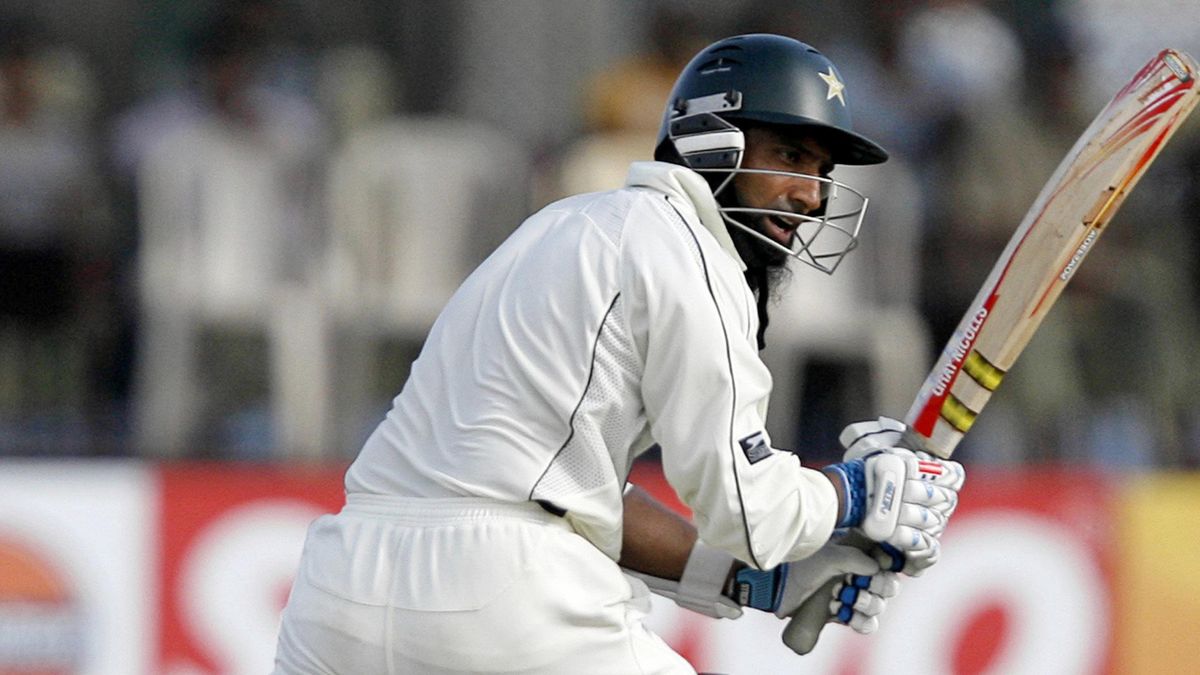
Mohammad Yousuf, a prominent figure in cricket, faced a whirlwind of challenges and controversies throughout his career.
In 2007, he signed with the Indian Cricket League (ICL), sparking a dispute with the Pakistan Cricket Board (PCB).
Under PCB’s pressure, Yousuf retracted his decision, hoping to join the Indian Premier League (IPL) instead. However, litigation issues from the ICL hindered this move, leaving him unbid in the IPL.
The Ban and the Comeback
In 2008, Yousuf once again considered the ICL after being dropped from the PCB squad. The PCB warned of severe consequences, but Yousuf joined the ICL mid-season.
This bold move led to his ban from the national team. Yet, his fortunes changed in 2009 when a Pakistani court lifted the ICL ban, paving the way for his return to Pakistani cricket.
Yousuf’s return to the Pakistan team for the 2009 Sri Lanka Test series was monumental. Breaking ties with the ICL, he aimed to mend fences with the team. His century in his comeback Test match was a resounding statement of his undiminished skill.
A Principled Stance: Respecting Ramadan
The Ban and the Unban
2010 brought a major setback as the PCB indefinitely banned Yousuf and Younis Khan. Despite this, Yousuf remained optimistic about a return, particularly for the series against South Africa.
His resilience paid off when he was called back for the England tour later that year.
Domestic Triumph and Fielding Honors
Yousuf’s captaincy led the Lahore Lions to victory in the 2010-11 Faysal Bank Twenty-20 Cup. Despite being known for modest fielding skills, he surprisingly won the fielder of the series award.
However, training injuries affected his international commitments. Yousuf battled multiple injuries, leading to suggestions from Moin Khan, a former captain, that he should retire from shorter formats and focus solely on Test cricket.
Negotiation Hurdles and Honoring Faith
In 2012, Yousuf’s talks with Leicestershire stalled over his request for Ramadan time off. Despite these professional challenges, he was honored with the Pride of Performance award, underscoring his significant contributions to cricket.
Awards on the Pitch: Mohammad Yousuf’s Stellar 2007
In 2007, Mohammad Yousuf clinched the prestigious ICC Test Player of the Year award. This remarkable achievement spotlighted his exceptional skills in cricket.
Yousuf’s performance was nothing short of spectacular, showcasing his mastery of the game.
Fast forward to 2011, and Yousuf’s talent received national recognition. He was honored with the Sitara-i-Imtiaz by Pakistan’s President.
This award, Pakistan’s third highest, celebrated Yousuf’s outstanding contributions to cricket. His journey from the cricket field to presidential accolades was truly inspirational.
Frequently Asked Questions (FAQs)
What significant records did Mohammad Yousuf set in his cricket career?
Mohammad Yousuf set remarkable records, including scoring 1,788 runs in Test cricket in 2006, a world record at the time. He also broke Viv Richards’s record by scoring the most Test runs in a single calendar year and matched Donald Bradman’s record of six centuries in consecutive Tests.
Why was Mohammad Yousuf banned from cricket in 2010, and how did he respond?
In 2010, the Pakistan Cricket Board banned Yousuf citing disciplinary issues and team infighting. Reacting to this, Yousuf announced his retirement on March 29, 2010. However, he later reversed this decision following a request from the PCB after Pakistan’s poor performance in a Test against England.
What is the significance of Mohammad Yousuf's conversion to Islam in his life and career?
Mohammad Yousuf’s conversion to Islam in 2005 was a pivotal moment in his life and career. Originally a Christian, his conversion marked a significant personal and spiritual journey. It also brought public attention and added a unique dimension to his identity as a cricket player.

